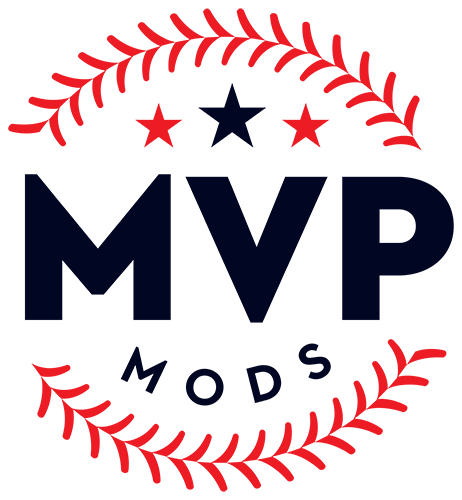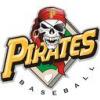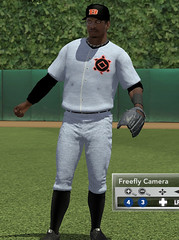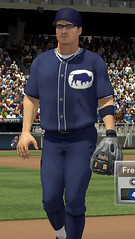About This File
In 1912, baseball promoter John T. Powers formed an independent professional
league known as the Columbian League. However, the withdrawal of one of the
organization's primary investors caused the league to fail before ever playing a game.
Undaunted, Powers tried again the following year, creating a new league with
teams in Chicago, Cleveland, Pittsburgh, Indianapolis, St. Louis, and Covington, Kentucky
. He named the organization the Federal League, and served as its first president.
Because it did not abide by the National Agreement on player payment in place in
organized baseball, the Federal League was called an "outlaw league" by its competitors.
The Federal League's outlaw status allowed it to recruit players from established clubs,
and it attracted many current and former players from the major as well as minor leagues.
Its first season Powers initially served as president, but he was soon replaced by James A. Gilmore,
under whose leadership the league declared itself a major league for the 1914 season.
Other financers of the League included oil baron Harry F. Sinclair, ice magnate Phil Ball,
and George S. Ward of the Ward Baking Company.
As a major circuit, the Federal League consisted of eight teams each season. Four of the teams
were placed in established Big League cities (Chicago, St. Louis, Pittsburgh and Brooklyn).
The other four teams were placed in more marginal areas (Baltimore, Buffalo, Indianapolis and Kansas City).
In the first year, 1914, some of the teams had official nicknames and some did not, but
either way, sportswriters were inclined to invent their own nicknames: "ChiFeds", "BrookFeds", etc.
By the second season, most of the teams had "official" nicknames, although many writers still
called many of the teams "-Feds".
In order for the Federal League to succeed, it needed Big League players. Walter Johnson signed
a three year contract with the Chicago team, but the Senators' Clark Griffith went personally to
Johnson's home in Kansas and made a successful counter-offer.
Major League players that jumped to the Federal League included Bill McKechnie, Claude Hendrix,
Jack Quinn, Russell Ford, Tom Seaton, Doc Crandall, Al Bridwell, Hy Myers and Hal Chase. The Federal
League also recruited Big League names to manage the new teams. Joe Tinker managed the Chicago team,
Mordecai Brown managed the St. Louis team and Bill Bradley managed the Brooklyn team.
The league had close pennant races both years. In 1914, Indianapolis beat out Chicago by 1½ games.
1915 witnessed the tightest pennant race in Major League history, as five teams fought into the final
week of the season. The eventual winner (Chicago) finished 0 (zero) games and .001 percentage point
ahead of second place, and a half-game and .004 in front of the third place finisher.
During the 1914-15 offseason, Federal League owners brought an antitrust lawsuit against the American
and National Leagues. The lawsuit ended up in the court of Federal Judge (and future Commissioner of
Baseball) Kenesaw Mountain Landis, who allowed the case to languish while he urged both sides to
negotiate. Swift action might have made a difference, but without the lawsuit going forward, the Federals
found themselves in deepening financial straits.
After the 1915 season the owners of the American and National Leagues bought out half of the owners
(Pittsburgh, Newark, Buffalo, and Brooklyn) of the Federal League teams. Two Federal League owners
were allowed to buy struggling franchises in the established leagues: Phil Ball, owner of the St. Louis Terriers,
was allowed to buy the St. Louis Browns of the AL, and Charles Weeghman, owner of the Chicago Whales,
bought the Chicago Cubs. Both owners merged their teams into the established ones. The Kansas City franchise
had been declared bankrupt and taken over by the league office after the close of the regular season, and the
Baltimore owners rejected the offer made to them. They had sought to buy and move an existing franchise to
their city, but were rebuffed, and sued unsuccessfully.
Teams
Balt Terrapins
Brooklyn Tip Tops
Buffalo Blues
Chicago Whales
Indianapolis Hoosiers(1914
Newark Peppers(1915)
KC Packers
Pittsburgh Rebels or (Stogies)
St Louis Terriers
the files used are the Orioles,Cubs,Astros,Royals,Dodgers,Mets,Cards cl1
Cubs cl2 and Pirates bpa iff's













